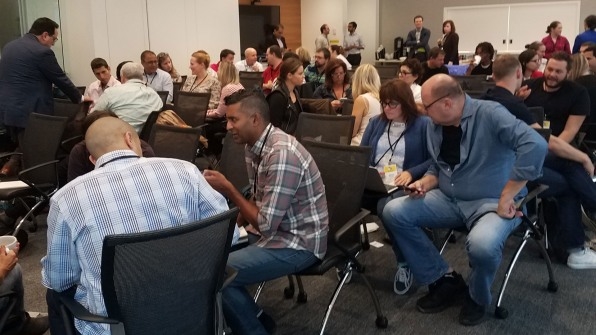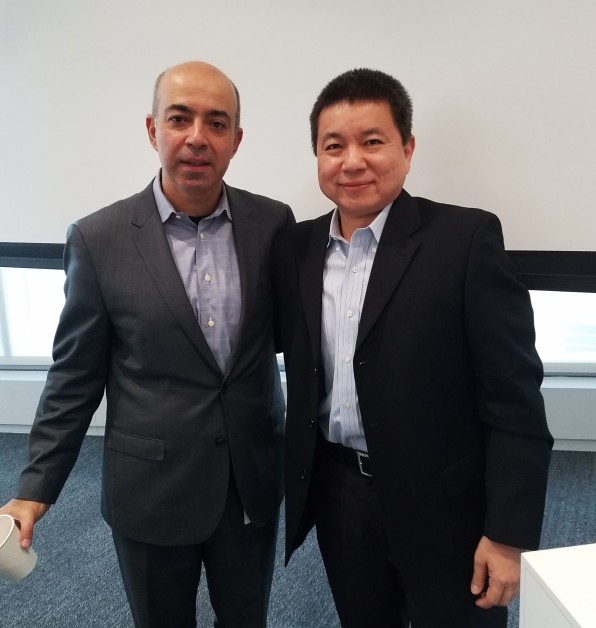IBM Watson Health Teams Up With The CDC To Research Blockchain
IBM Watson Health has signed an agreement with the Centers for Disease Control and Prevention to research the benefits of blockchain, IBM’s chief science officer, Shahram Ebadollahi, announced today.
“This is, in essence, an extension of the work we’ve been doing this year with the FDA,” Ebadollahi said, “exploring owner-mediated data exchange using blockchain.” He added that the CDC and Watson Health expect the joint effort will aid in federal adoption of the emerging technology.

Ebadollahi made the announcement during Watson Health’s panel discussion at the Fast Company Innovation Festival. Speaking to more than 50 attendees at Watson Health’s New York City offices, he and IBM’s chief health officer, Kyu Rhee, focused on blockchain and artificial intelligence and their combined potential to enable providers to deliver more effective healthcare.
The CDC has been running proof-of-concept trials on blockchain technology this year in the hopes of finding more efficient and secure ways to harness data and expedite federal reaction to health crises and threats. Ebadollahi said the CDC will be issuing a more detailed announcement about the partnership with Watson Health in the months to come.
A Technology On the Rise
Blockchain is a hypersecure distributed ledger technology developed initially to assist in cryptocurrency transactions. Over the last several years it has begun gaining traction for applications in other areas requiring high levels of security.
“Blockchain is very useful when there are so many actors in the system,” Ebadollahi said. “It enables the ecosystem of data in healthcare to have more fluidity, and AI allows us to extract insights from the data. Everybody talks about Big Data in healthcare but I think the more important thing is Long Data.”

Rhee, an M.D. who began his career practicing pediatrics and internal medicine, said healthcare professionals are swamped by data. “There are more than 8,000 healthcare publications each day,” he said. “Nobody can keep up. We need a system to translate all the data into key insights that can be applied to a patient, and that’s where AI systems can support a clinician.”
Rhee said he believes AI applications in healthcare will eventually enable consumers to purchase a home health system as easily as they can now acquire a home security system. “Think about where we were with the internet in 1993,” he said. “That’s about where we are today with AI.”
Both Ebadollahi and Rhee are convinced that blockchain offers a level of security that will reassure all the various stakeholders in healthcare–patients, physicians, and payers. “Privacy and security come first,” Rhee said. “Patients own their data, and you can’t share data with people you don’t trust.”
Watson Health, and IBM more broadly, are guided by three principles in the exploration of AI applications. First, the purpose of AI is to help, not replace, humans. “In that sense, AI stands for augmented intelligence,” Rhee said. Second is transparency. “We need to be doing our work in a glass box rather than a black box,” he said. And the third principle is to help encourage the development of new skills. “The AI revolution is going to create a lot of new-collar jobs,” Rhee added. “The standard physician’s team will likely include a data scientist in the future.”
Ebadollahi believes that blockchain and AI are on the verge of revolutionizing healthcare globally. “When a bunch of physicists collaborated and created this thing called the World Wide Web a few decades ago, nobody imagined Facebook and Google and Amazon,” he said. “With blockchain we can collect data and extract insights through AI, and the future will have an economy around that we can hardly even imagine right now.”
Fast Company , Read Full Story
(36)














